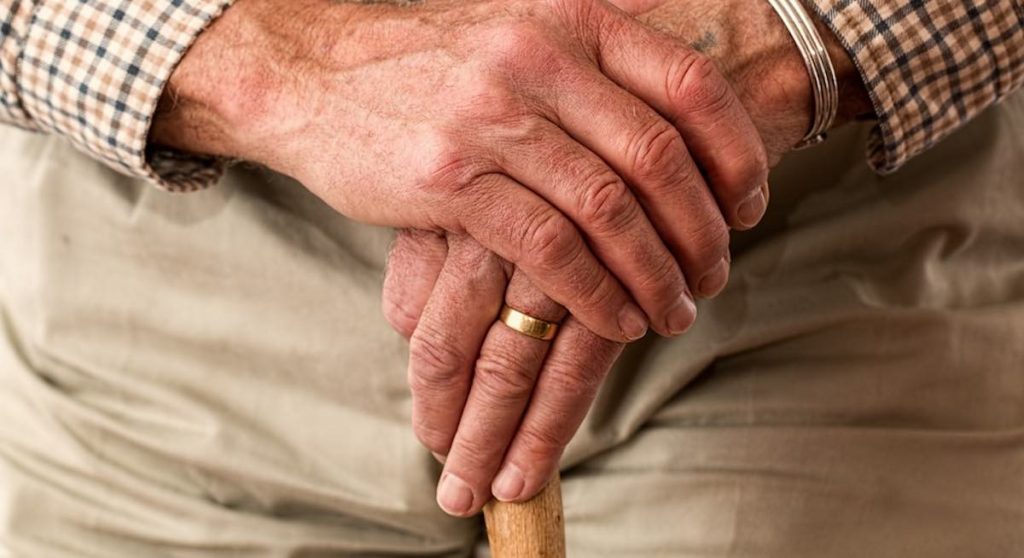Reprinted with permission from World At Large, a news website of nature, politics, science, health, and travel.
Comprising 30% of the body’s total protein mass, collagens are characterized by sturdy, flexible chains of around 1,400 amino acids that play a key role in bone, skin, and muscle health.
Aging decreases our body’s capacity for synthesizing new proteins, and as a result collagen levels can fall by as much as 75% by the time a human being reaches 80 years of age.
Experts in several biological fields such as longevity or dermatology have suggested that supplementing with hydrolyzed collagen (HC) can delay some of the hallmark traits we associate with aging such as hair loss, wrinkling of the skin, joint and muscle pain, and skeletal brittleness.
Here’s a look at the literature on how hydrolyzed collagen supplements can be good for not just bones, joints, and skin, but also for attenuating the effects of certain diseases like osteoarthritis, diabetes, and inflammation.
Hydrolyzed collagen for bones

As one of the sturdiest protein structures owing to its triple-helical shape, HC can benefit bone health in a number of ways, both as an attenuator of bone diseases like osteoarthritis, and as a fortification for bone cells.
“The benefits of hydrolyzed collagen for osteoporosis prevention go beyond the effect of a simple protein supplementation,” write the authors of an in vitro study which found that bovine-derived HC stimulated the growth of bone cells like osteoclasts and osteoblasts, while increasing mineralized bone-matrix formation–findings which corresponded with an in vivo analysis of post-menopausal woman with osteoarthritis.
Rhonda Patrick Ph.D. highlights on her blog that the importance for collagen in bone health can be summarized by the fact that certain genetic mutations in collagen-producing genes can lead to misshapen and more easily fractured bone structures.
Bone mineral densities were increased in post-menopausal woman with reduced bone density, notably around the neck and spine, after a period of supplementing with a hefty 5 grams of HC accompanied by 500 to 800 milligrams of calcium and 400 – 800 IUs of vitamin D.
Contradictory research done on a similar group of women with osteopenia, a condition characterized by bone-density loss, found no gains in bone metabolism. However some of the woman were deficient in calcium, and others were overweight, both conditions that are proven to negatively affect bone health.
CHECK OUT: Bone Broth Strengthens Immunity, Body, and Joints, And You Don’t Need To Spend A Bunch To Make It
While this muddies the waters in the discussion on bone health when supplementing with HC, it may have revealed that simply accompanying it with a calcium supplement is enough to see the similar benefits experienced by the individuals in the other studies.
Hydrolyzed collagen for skin health

The ultimate reason to describe HC as an anti-aging supplement would be its effects on skin.
Type I and III collagen are most common in skin and have been shown in multiple studies to increase hydration levels, and reduce the appearance of wrinkles, crow’s feet, and numerous other decreases in facial elasticity.
“Knowledge of the role of collagen in the aging process over 30 years ago helped to establish the use of bovine collagen as a filling agent to temporarily replace collagen lost with age in soft tissue” write the authors of a broad review on dermal aging, noting another study that found collagen production decreases on average by about 1% per year.
Skin dryness, crow’s feet, wrinkles, and overall skin elasticity improved by 7% after 4-8 weeks of supplementing with between 2.5 and 5 grams of HC, with a notably more significant result coming from the oldest women in the randomized controlled trial (RCT).
READ: Dreading a Dark Winter Lockdown? Think Like a Norwegian
It should be noted that collagen is the highest correlating factor with skin thickness, or a lack thereof, and if anti-aging is to be considered function over form, then skin less easily penetrated by UV rays, bacteria, and dust is perhaps more desirable for some individuals than younger looking skin.
Another RCT of women from 40-60 years of age who took 1 gram of HC along with vitamin C for 12 weeks showed that the HC-supplemented group had a 7.23-fold greater improvement in skin hydration at six weeks.
Hydrolyzed collagen for joint health

Joints are another group of tissues that experience improved health outcomes with HC.
MORE: The Best Exercise for Seniors is High-Intensity Interval Training, Study Says
Collagen II contributes 60% of dry weight to joint cartilage, and diseases like arthritis and osteoarthritis often begin, and can be accelerated by, the wear down and loss of joint cartilage.
In an RCT involving 80 men and women with osteoarthritis, scientists found when 600 milligram of HC was taken along with 200 milligrams of chondroitin, another supplement commonly taken for joint health, and 100 of hyaluronic acid, the participants’ self-reported pain related to their osteoarthritis decreased by 35% after 70 days.
They also reported decreases in stiffness, and functional limitations with their affected joints.
Other studies looking at the effects of HC and undenatured HC supplements with rheumatoid arthritis found statistically significant effects even with very small doses.
RELATED: Taking Hot Baths Regularly May Lower Blood Pressure, Study Says
Arthritis of all kinds, as well as dermal aging, bone density loss, and joint deterioration, all share their #1 correlative factors, which would be age. HC, being capable of attenuating these conditions, could therefore be considered an anti-aging compound.
SHARE The Good Health News On Social Media With Pals…



















